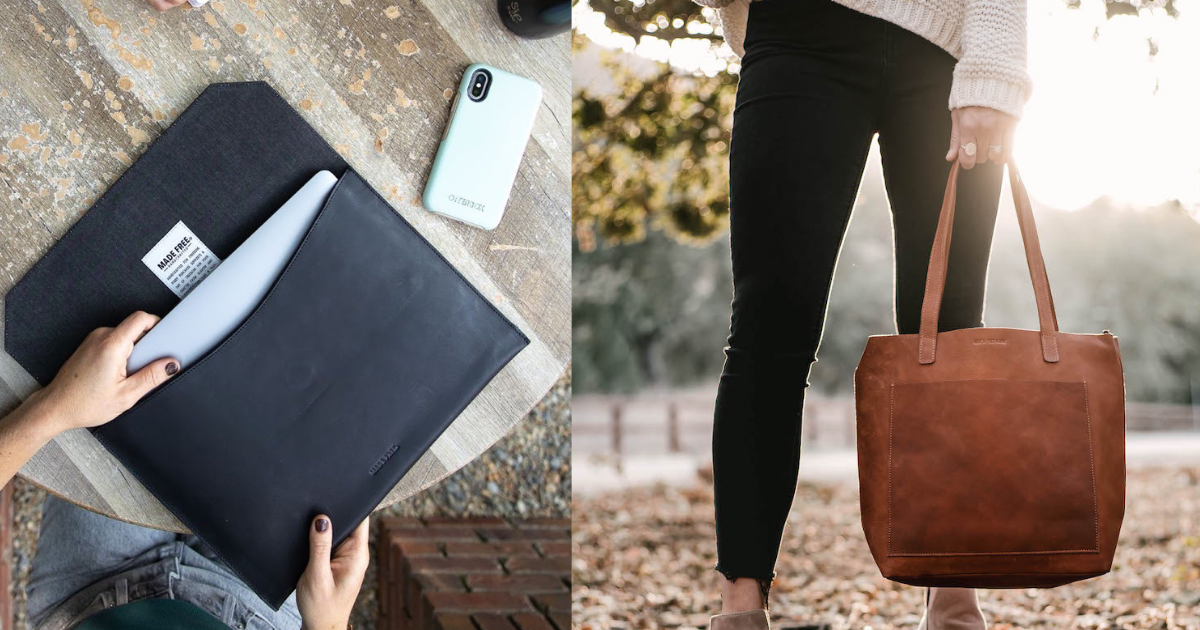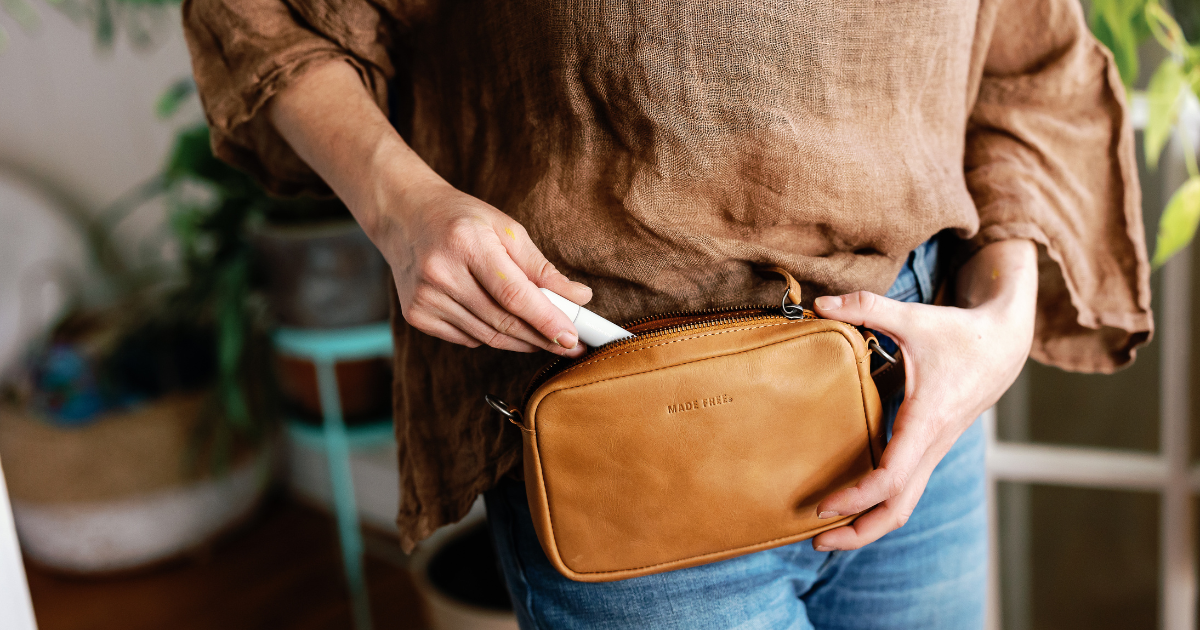
August is National Water Quality Month! This month is dedicated to preserving Earth's most valuable resource and keeping it safe to drink. Clean water is essential for our health, ecosystems, and communities. It supports agriculture, energy production, and is vital for daily living.
However, water pollution from industrial processes, agriculture, and waste disposal poses significant threats to this resource. National Water Quality Month serves as a reminder to take proactive steps to protect and improve water quality for current and future generations. One way we can contribute to water conservation is through the use of vegetable-tanned leather.
What is Vegetable-Tanned Leather?
Vegetable-tanned leather, often referred to as "veg tan," is treated using natural tannins extracted from plants like tree bark, leaves, and fruits. This ancient method, dating back thousands of years, is known for its durability, natural finish, and eco-friendly process.

You might also like: What is vegetable tanned leather?
The Impact of Water Pollution from Leather Tanning
Conventional leather tanning, particularly chrome tanning, has a significant negative impact on water quality. Chrome tanning involves harsh chemicals that produce toxic wastewater, which can contaminate water sources, harm aquatic life, and disrupt ecosystems. Additionally, these chemicals do not break down easily, posing long-term environmental risks.
The Benefits of Vegetable-Tanned Leather for Water Quality
Eco-Friendly Tannins: Vegetable tanning uses natural, biodegradable tannins, which significantly reduce the ecological footprint of leather production. The wastewater from this process is far less harmful, making it a more sustainable choice for our environment.
Pictured: Tannin powders used to naturally dye the leather
Safe for Artisans: Unlike chrome tanning, which exposes workers to harmful chemicals, vegetable tanning avoids these risks, providing a safer working environment for the artisans who craft our leather goods.
Sustainable Quality: Veg-tanned leather is not only better for the environment but also superior in quality. It ages beautifully, developing a rich patina over time, and is more durable, reducing the need for frequent replacements.
How MADE FREE Contributes to Water Conservation
At MADE FREE, we are committed to sustainability in every step of our production process. By choosing vegetable-tanned leather, we ensure that our products are crafted with care for both the environment and the people involved in their creation.
- Reduced Water Pollution: Our vegetable-tanned leather products contribute to cleaner water by minimizing the release of harmful chemicals into our water systems.
- Supporting Ethical Practices: We prioritize the health and safety of our artisans, ensuring they work in conditions free from toxic exposure, thus promoting overall well-being.
- Long-Lasting Products: Our high-quality leather items are designed to last, encouraging a shift away from disposable fashion and towards more sustainable consumer habits.
Join Us in Celebrating National Water Quality Month
This National Water Quality Month, consider the impact of your choices. By supporting brands like MADE FREE that use vegetable-tanned leather, you’re not only investing in beautiful, durable products but also contributing to a healthier planet.
Explore our collection of eco-friendly, vegetable-tanned leather products, from tote bags to laptop sleeves, and make a choice that supports clean water and sustainable practices.
Shop the MADE FREE Vegetable-Tanned Leather Collection
At MADE FREE, we believe that every purchase has the power to make a difference. Together, we can support ethical practices, protect our water sources, and contribute to a sustainable future.

SHOP THE MADE FREE LEATHER COLLECTION
Join our commitment to water quality and sustainability. Happy National Water Quality Month from all of us at MADE FREE!







0 comments